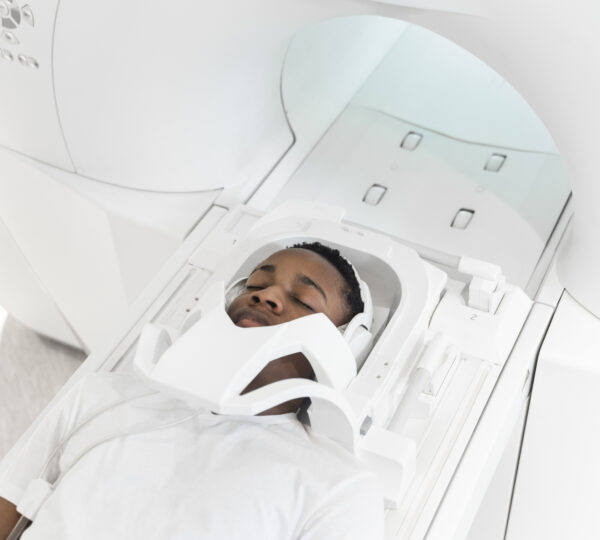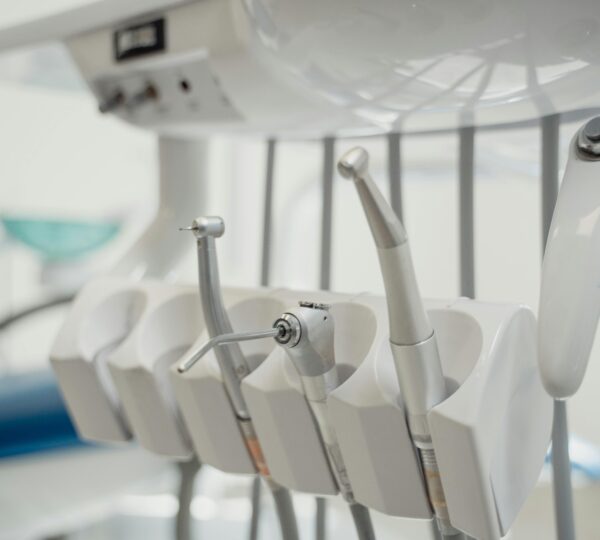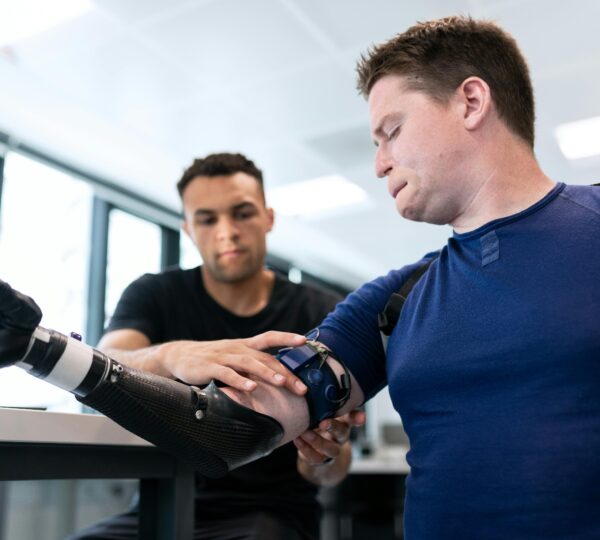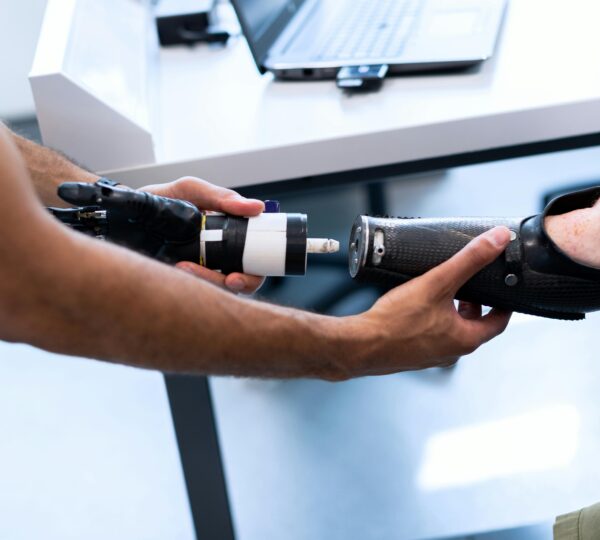
How AI is Revolutionizing Healthcare
Grandma Vicky had always dreaded hospitals and avoided them as much as she could. I had to bring her there recently because she had been feeling unwell for a while, but she worried about the long process of seeing multiple specialists and waiting for test results. To her surprise, when we arrived, the process was completely different from what she remembered. Instead of going through the usual rounds of testing, her doctor used an AI-powered system to help diagnose her condition within minutes. It analyzed her symptoms and medical history, suggesting a diagnosis faster than any traditional method.
This experience opened her eyes to how AI is rapidly transforming healthcare, improving everything from diagnostics to patient care. The speed and accuracy got me wondering—what other incredible advancements are we seeing today, and how might AI continue to revolutionize the medical field in the near future?
Ways AI is Revolutionizing Healthcare
-
AI in Medical Diagnostics: Speed and Accuracy
AI has made significant strides in diagnostics, providing faster and more accurate results than traditional methods. A common example is AI-driven medical imaging. In fields like radiology, AI systems are trained to analyze images such as X-rays, MRIs, and CT scans with incredible precision. For instance, a study published by the Journal of the American Medical Association (JAMA) found that AI systems in breast cancer screening had higher detection rates than radiologists. This development could potentially lead to earlier diagnoses and more successful treatment outcomes.
According to Dr. Eric Topol, a prominent AI researcher and author of Deep Medicine, “AI doesn’t just replicate what humans do—it enhances it. In diagnostics, AI’s capability to see patterns in data that even the best-trained doctors might miss is groundbreaking.”
AI-powered diagnostics are expected to grow by 42% annually, with the global AI healthcare market expected to reach $45.2 billion by 2026, according to a report by MarketsandMarkets.
Beyond diagnostics, AI is also making healthcare more accessible with tools and apps designed to help people manage their well-being on a daily basis. Whether you’re tracking symptoms, consulting with doctors virtually, or managing chronic conditions, there are numerous AI-powered options available, both free and paid, to assist you. Here are some popular tools you can explore to take control of your health:
Free Options
- Ada Health: A symptom checker that can help identify potential health issues.
- Babylon Health: Offers vir
- tual consultations with doctors and AI-powered health assessments.
- Wysa: An AI-powered mental health chatbot providing support for stress, anxiety, and depression.
- HealthifyMe: A health and fitness app that uses AI to track habits and provide personalized recommendations.
Paid Options
- Livongo: A diabetes management program using AI to help users manage their condition.
- Omada Health: Programs for weight management, diabetes, and heart health.
- Welltok: A health engagement platform that uses AI to personalize health recommendations.
With these tools, individuals can benefit from AI’s potential to not only enhance diagnostics but also improve overall well-being in an increasingly personalized and efficient way.
Remember: While these tools can be valuable, they are not a substitute for professional medical advice. Always consult with a healthcare provider for any serious health concerns.
2. Personalized Treatment Plans
AI has the potential to tailor treatment plans to individual patients, a concept known as precision medicine. This personalized approach uses AI algorithms to analyze a patient’s genetic makeup, medical history, and even lifestyle factors to predict how they’ll respond to certain treatments.
Take, for instance, oncology, where AI is making strides in tailoring cancer treatments. AI systems can analyze genetic data and cross-reference it with millions of treatment outcomes to recommend the most effective therapies. This not only increases the success rate but also minimizes harmful side effects for patients.
At Stanford Medicine, researchers are using AI to identify which cancer patients will respond best to immunotherapy. By analyzing patient data, they’re able to predict success rates, offering personalized treatments that significantly improve patient outcomes.
“With AI, we can now predict which treatments will work for which patients, leading to a new era of individualized care,” said Dr. Fei-Fei Li, a leading AI researcher and co-director of Stanford’s Human-Centered AI Institute.
3. AI in Drug Discovery and Development
One of the most revolutionary applications of AI in healthcare is in drug discovery. Traditionally, discovering a new drug takes years—sometimes even decades—and costs billions of dollars. AI is helping to accelerate this process by quickly analyzing massive amounts of data to identify potential drug candidates.
A recent breakthrough came during the COVID-19 pandemic when AI was used to identify treatments and potential vaccine candidates in record time. AI models were able to simulate the interaction of the virus with potential drugs, helping researchers focus on the most promising options.
The pharmaceutical giant Pfizer used AI to help streamline vaccine development, cutting years off the traditional timeline. AI’s role in speeding up drug discovery is so impactful that it’s predicted to reduce the cost and time of bringing new drugs to market by 70%.
AI-driven drug discovery startups like Insilico Medicine are at the forefront of innovation, leveraging machine learning to find new drugs faster and more cost-effectively. This is expected to save the industry billions in research costs while bringing life-saving medications to patients more quickly.
4. Enhancing Patient Care with AI Chatbots and Virtual Assistants
AI is also making waves in the area of patient care through chatbots and virtual assistants. These tools can help manage appointments, answer medical questions, and even provide basic diagnostic assessments based on symptoms. AI-powered virtual assistants are already being used in hospitals to help reduce the workload of healthcare professionals.
For example, Babylon Health is a UK-based AI-powered health app that provides 24/7 access to medical advice via chatbot, saving patients unnecessary trips to the doctor. The AI in this app uses a vast database of symptoms and conditions to give users advice based on their input, ensuring that healthcare is more accessible and immediate.
In a hospital setting, virtual assistants like IBM Watson Health are being used to handle patient intake, freeing up doctors and nurses to focus on critical tasks. This allows for more efficient hospital operations and improved patient experiences.
Expert insight: “AI can help reduce the strain on healthcare systems by managing routine tasks, allowing professionals to focus on patient care,” says Dr. David Bates, Chief of General Internal Medicine at Brigham and Women’s Hospital.
5. Revolutionizing Surgery with AI and Robotics
AI-assisted robotics are changing the face of surgery, allowing for minimally invasive procedures that are more precise and have quicker recovery times. Robots like the da Vinci Surgical System are being used in surgeries ranging from prostatectomies to heart valve repairs. These robots, controlled by AI, enable surgeons to perform highly complex procedures with a level of precision previously unattainable.
A study by The Lancet showed that patients who underwent robotic-assisted surgery had fewer complications and shorter recovery times compared to those who had traditional surgeries.
Moreover, AI-powered robotic systems can learn from thousands of past surgeries to improve future procedures, continually refining their techniques to enhance outcomes for patients.
6. Ethical Considerations and Challenges
While AI brings many advantages, there are also ethical considerations to address, such as data privacy and bias in AI algorithms. Healthcare data is incredibly sensitive, and ensuring that AI systems handle patient data responsibly is crucial. Moreover, AI algorithms are only as good as the data they’re trained on. If the training data is biased, AI can produce skewed results, potentially leading to misdiagnosis.
Governments and health organizations are starting to develop regulations to ensure that AI in healthcare is used ethically. For example, the European Commission has proposed the Artificial Intelligence Act, aimed at regulating the development and use of AI systems to ensure they are safe and respect fundamental rights.
Conclusion: The Future of AI in Healthcare
AI is undoubtedly revolutionizing healthcare, making it faster, more personalized, and more accessible. From diagnostics to treatment and surgery, AI’s ability to analyze vast amounts of data and deliver precise results is transforming the industry. While challenges remain, the future is bright for AI in healthcare, with the potential to save lives, reduce costs, and enhance patient outcomes across the globe.
As AI continues to evolve, it’s essential to remain mindful of ethical considerations and ensure that these systems are used to benefit everyone, creating a more equitable and efficient healthcare system.
Citations
- Statista: Statista. (2023). “Number of digital voice assistants worldwide.”
- Accenture: Accenture. (2023). “AI in Healthcare: A New Era of Transformation.”
- McKinsey & Company: McKinsey & Company. (2023). “Personalization Powered by AI.”
- OpenAI: OpenAI. (2023). “ChatGPT: A Large Language Model.” https://openai.com/blog/chatgpt.
- UNESCO: UNESCO. (2023). “AI in Education: A Guide for Policymakers.” https://en.unesco.org/artificial-intelligence-education.














